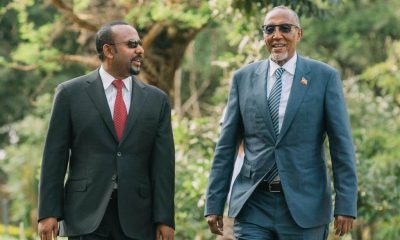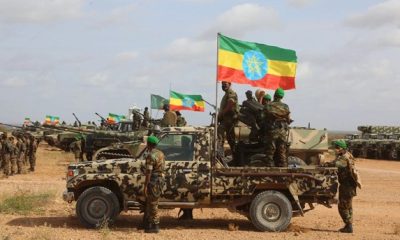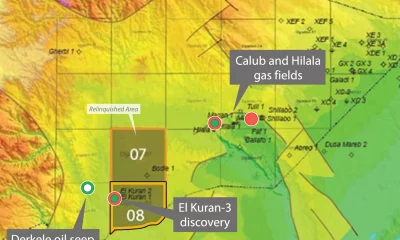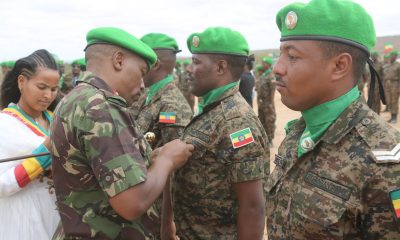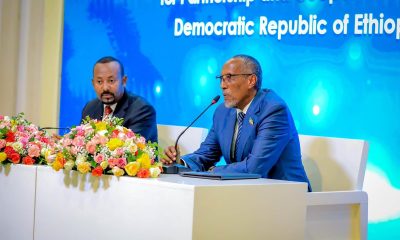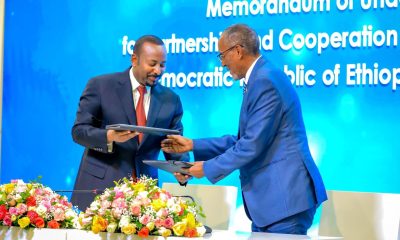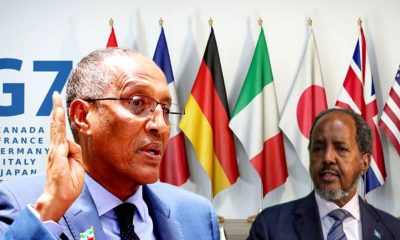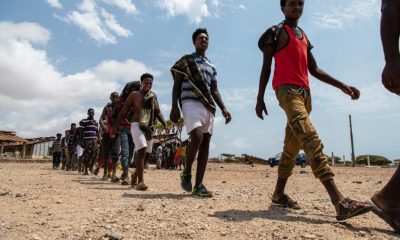Analysis
Analysis: The Quest for Justice in Juweria Mohamed’s Case

Family of Slain Somali Regional Council Member Seeks Justice Amid Allegations of Intimidation
On October 25, 2022, Juweria Mohamed, a member of the Somali Regional State Council and the ruling Prosperity Party Central Committee, was shot and killed by a federal police officer at Garad Wilwal Airport in Jigjiga, the capital of the Somali Regional State. This tragic incident also left three others severely injured, including Juweria’s sister, Ayan Mohamed, and regional cabinet member Abdirashid Mohammed. The incident has sparked significant controversy, with the family alleging a lack of justice, inadequate compensation, and ongoing harassment by regional security forces.
The Somali Regional State has a complex history of political tension and conflict, often involving regional and federal authorities. This incident is a stark reminder of the ongoing struggles within the region, highlighting issues of governance, accountability, and the rule of law. The shooting of a prominent political figure under such circumstances underscores the fragile nature of political stability and security in the region.
Juweria Mohamed’s death has significant implications for the Somali Regional State and the broader Ethiopian political landscape. As a member of the ruling Prosperity Party and a regional council member, her assassination raises questions about the safety and security of political figures in Ethiopia. The family’s allegations of intimidation and lack of legal recourse reflect deeper systemic issues within the regional security apparatus and judicial system.
The family’s frustration stems from what they perceive as a failure of the legal system to provide justice and adequate compensation. Despite the federal police officer being sentenced to death by the high court in Jigjiga, the family was absent from the trial and remains uncertain about the execution of the verdict. This uncertainty exacerbates their sense of injustice and fuels suspicions of procedural irregularities and potential cover-ups.
The allegations of threats, physical assault, and arrests by regional security forces against Juweria’s family members are deeply troubling. Such actions not only hinder the pursuit of justice but also create an environment of fear and oppression. Yasin Mohamed’s accounts of imprisonment and threats further illustrate the challenges faced by individuals seeking accountability in regions with entrenched security and political interests.
The international community, particularly countries with significant Somali diaspora populations like the United States, where Ayan Mohamed resides, will closely monitor this case. Ayan’s injuries and subsequent leg amputations add a layer of international concern and could prompt calls for broader scrutiny of human rights practices in Ethiopia’s Somali region.
The handling of Juweria Mohamed’s case could have far-reaching consequences for Ethiopia’s internal politics and its relations with the international community. A transparent and fair resolution could improve confidence in the country’s judicial system and governance. Conversely, continued allegations of injustice and harassment could lead to increased political instability and potential international criticism.
The tragic death of Juweria Mohamed and the subsequent treatment of her family highlight significant challenges within the Somali Regional State’s legal and security systems. Achieving justice in this case is not only crucial for the family but also for the broader political and social fabric of the region. Ensuring transparency, accountability, and protection from harassment are essential steps towards rebuilding trust and stability in the region.
Analysis
Is an Israel-Hezbollah War Inevitable?
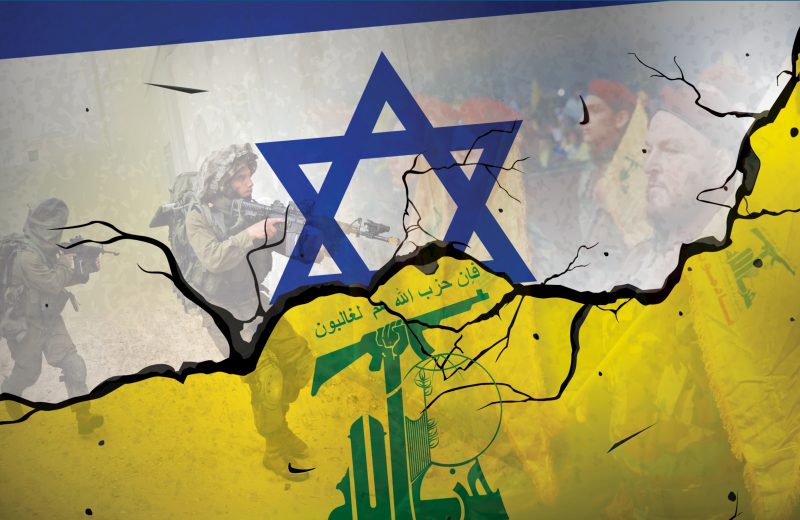
By signaling its unwavering support for Tel Aviv in any potential campaign, Washington may be edging this looming conflict closer to reality. The exchanges of fire between Israel and Hezbollah have been a persistent feature over the past eight months, recently intensifying to an alarming degree. This situation has the potential to escalate into a full-blown war in two primary ways.
One possible route to escalation is for the current tit-for-tat exchanges to spiral out of control, leading to an unintended and uncontrollable conflict. This could occur as each side attempts to deter future attacks by responding forcefully to the most recent ones. The second potential path to war would be a deliberate decision by one side to engage in full-scale conflict. Hezbollah is unlikely to choose this route. The organization has made it clear that its actions are in solidarity with the Palestinians in Gaza and in support of Hamas, rather than a desire for an all-out war with Israel. The 2006 conflict, which resulted in significant human and material costs for Hezbollah, serves as a cautionary tale.
Israel, on the other hand, might consider launching a full-scale war in Lebanon in the coming months if the situation does not spiral out of control first. Reports suggest that U.S. Secretary of State Antony Blinken has conveyed to Arab officials his belief that Israel is intent on invading Lebanon. Such an invasion would likely be driven by internal political and emotional factors rather than a clear-eyed assessment of Israeli security interests.
One of the driving factors behind this potential escalation is the plight of approximately 60,000 Israelis displaced from northern Israel due to security concerns. These individuals represent a significant political force advocating for decisive action to improve security and allow their return. Although a full-scale war might initially worsen the security situation, there is a misplaced hope that aggressive military action could lead to a long-term solution.
The personal political and legal situation of Israeli Prime Minister Benjamin Netanyahu is also a major factor. Netanyahu’s hold on power and his ability to avoid corruption charges may hinge on maintaining a state of war. With the “intense phase” of the war with Hamas seemingly drawing to a close, Netanyahu might see a new conflict with Hezbollah as essential to his political survival. His coalition partners, such as Finance Minister Bezalel Smotrich and National Security Minister Itamar Ben Gvir, are also hardliners who favor military action against Hezbollah.
US warns Israeli offensive in Lebanon could bring wider war, draw in Iran
An additional factor is the belief among some Israelis that southern Lebanon is part of “greater Israel” and should be subject to military conquest and settlement. While this idea is on the fringe, it has gained some traction in recent years.
Israel’s previous military operations in Lebanon suggest that a new conflict would not achieve lasting security. Israel invaded Lebanon in 1978 and again in 1982, maintaining an occupation of southern Lebanon until 2000. Despite these efforts, Hezbollah remains a formidable force. The 2006 war demonstrated Hezbollah’s resilience, and the group has only grown stronger since then. Estimates of Hezbollah’s rocket and missile arsenal suggest it could inflict significant damage on Israel, despite the sophistication of Israeli air defenses.
The Biden administration genuinely seeks to avoid a new Israel-Hezbollah war, but its efforts face significant challenges. United Nations Security Council Resolution 1701, which aimed to resolve the 2006 conflict, provides a potential framework for peace. However, the current negative atmosphere and Hezbollah’s solidarity with Gaza Palestinians complicate these efforts.
The administration’s declaratory policy, including assurances of support for Israel in the event of a conflict, may inadvertently encourage Israeli aggression. If a full-scale war does break out, the world is likely to view the United States as complicit, leading to diplomatic isolation and increased anti-American sentiment.
Ultimately, an Israeli invasion of Lebanon would likely result in extensive destruction without achieving long-term security. Instead, it could further entrench Hezbollah’s role as a defender against Israeli aggression and exacerbate regional instability. The Biden administration’s challenge is to navigate these complex dynamics and prevent a conflict that would have far-reaching and devastating consequences for the region and beyond.
Africa
Somaliland’s Tribal Power Struggle: Wadani vs. KAAH
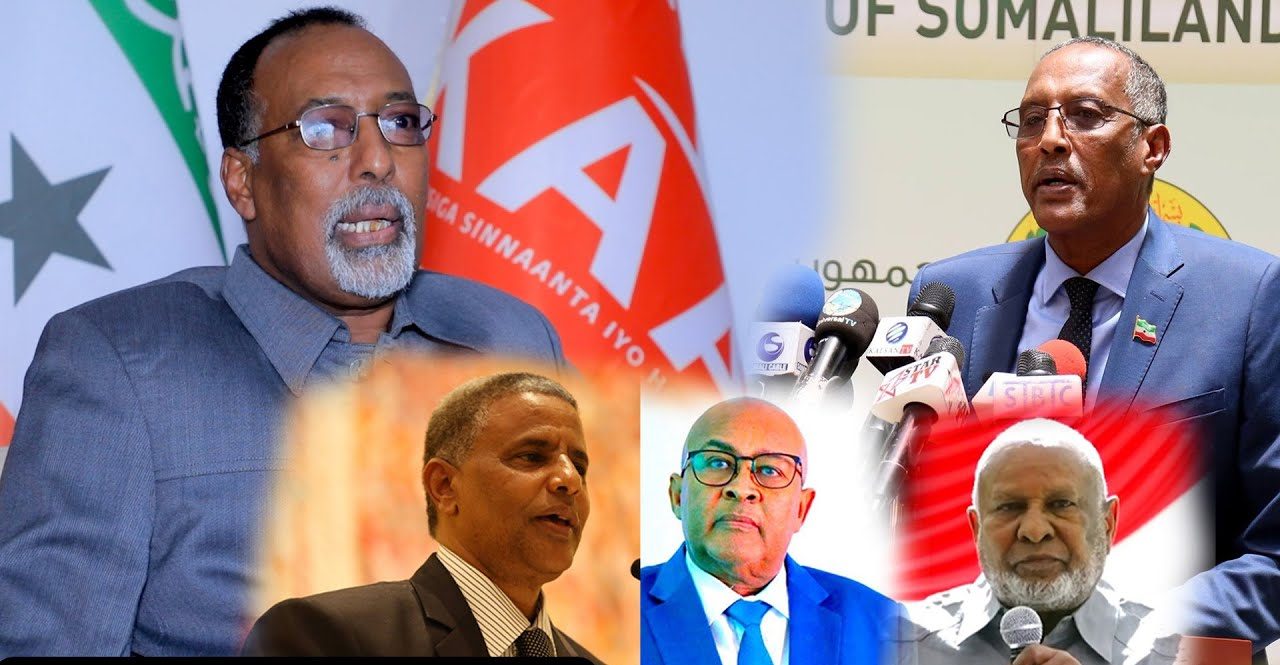
How Clan Loyalties and Traditional Leaders Threaten the November 2024 Elections –
In a shocking turn of events, Somaliland is witnessing a disturbing regression into tribal politics as it gears up for the November 2024 elections. What was once a beacon of hope for democracy in the Horn of Africa is now at risk of being overshadowed by the sinister influence of clan loyalties and traditional leaders. The upcoming elections, rather than being a celebration of democratic progress, are turning into a tribal showdown that threatens the very fabric of Somaliland’s hard-won peace and stability.
The recent clash between KAAH chairman Mahmoud Hashi and Wadani party candidate Abdirahman Cirro over the Habarjeclo votes has laid bare the ugly reality of Somaliland’s political landscape. This isn’t just a political disagreement; it’s a struggle for tribal dominance that is eroding the democratic principles Somaliland has strived to uphold.
Imagine this: after decades of fighting for independence and building a semblance of democratic governance, the people of Somaliland now find their fate being decided not by the ballot box, but by traditional clan elders. These elders, particularly from the Habarjeclo tribe, have blatantly disregarded Somaliland’s electoral laws, crafting new rules that serve their interests and sidelining the nation’s constitution. This brazen power grab is nothing short of a betrayal of the people’s trust and a mockery of their democratic aspirations.
The complicity of legislative councils and the senate, dominated by Habarjeclo figures, in this travesty is particularly egregious. They have not only sanctioned this illegal takeover but actively participated in it. This scandalous subversion of democracy is a stark reminder of how fragile Somaliland’s political system remains. The upcoming elections, instead of being a beacon of democratic progress, risk becoming a farce dominated by tribal allegiance.
Let’s be clear: this isn’t just about political maneuvering. It’s about the future of a nation and its people. The orchestrated push by traditional Habarjeclo leaders to monopolize political power and exclude other parties from the presidential race on November 13, 2024, is a direct assault on the multi-party system. This system, which allows for political plurality, is being systematically dismantled in favor of tribal hegemony. The exclusion of the Horseed and Hilaac organizations and the aggressive stance of the Wadani party only exacerbate the situation, creating an atmosphere of tension and instability.
What is perhaps most alarming is the silence of Somaliland’s educated elite and those in top positions. Their acquiescence—or worse, their complicity—in this regression into tribalism is a betrayal of their responsibilities. How can these leaders, who should be the vanguards of democracy, remain silent as the nation teeters on the brink of tribal anarchy?
The spectacle of three politicians from the Habarjeclo tribe—Mohamed Kahin of Kulmiye, Hirsi Haji Ali of Wadani, and Mahmoud Hashi of KAAH—competing for their tribe’s votes is a damning indictment of Somaliland’s political landscape. This internal feud, framed as a struggle for tribal dominance, is a disgrace to the democratic ideals that Somaliland purportedly upholds.
The people of Somaliland deserve better. They deserve leaders who prioritize national unity and democratic governance over narrow tribal interests. The November 2024 elections should be an opportunity to reaffirm Somaliland’s commitment to democracy, not a descent into tribal chaos.
Mahmoud Hashi’s attempt to leverage Abdirahman Irro’s power for the benefit of KAAH, and Irro’s refusal to relinquish Wadani’s presidential ambitions, only highlights the extent to which tribal politics has corrupted the electoral process. This sordid saga of backroom deals and tribal horse-trading is a travesty of democracy.
The people of Somaliland have not endured decades of conflict and instability only to see their democratic dreams dashed by the whims of tribal leaders. The silent majority—the ordinary men and women who want nothing more than peace, stability, and a voice in their own governance—must stand up and demand better. They must hold their leaders accountable and insist on a return to the principles of democracy and the rule of law.
As the elections approach, it is imperative that the international community and the people of Somaliland hold their leaders accountable. The time has come to reject the pernicious influence of tribal politics and demand a return to democratic principles. Only by doing so can Somaliland hope to achieve the peace and stability that its people so desperately crave.
The future of Somaliland hangs in the balance. Will it be a future defined by democratic progress and national unity, or will it be marred by tribalism and division? The choice lies in the hands of the Somaliland people and their leaders. The world is watching, and the stakes could not be higher.
Exposing the Conspiracy: Mohamed Abdullahi Omar’s Hidden Agenda Against Somaliland
Analysis
US Enforces New Sanctions on Iran Amid Nuclear Escalations
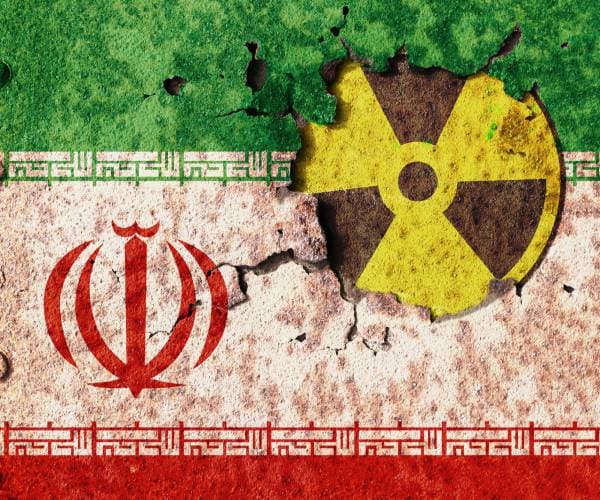
Sanctions Target UAE-Based Companies and Vessels Involved in Iranian Petroleum Transport
The United States’ recent imposition of sanctions on Iran marks another chapter in the prolonged and complex relationship between the two nations. Since the 1979 Iranian Revolution, the US and Iran have had a contentious relationship, characterized by economic sanctions, diplomatic isolation, and periodic confrontations. The 2015 Joint Comprehensive Plan of Action (JCPOA), known as the Iran nuclear deal, provided a brief respite, but the US withdrawal from the agreement in 2018 under the Trump administration reignited tensions. The latest sanctions reflect ongoing concerns over Iran’s nuclear ambitions and the broader geopolitical struggle in the Middle East.
Iran’s advancements in its nuclear program, specifically enriching uranium to 60% purity, pose significant concerns for global security. This level of enrichment is alarmingly close to the 90% required for weapons-grade uranium. Despite Iran’s claims of peaceful intentions, the potential for nuclear weapon development cannot be ignored. This escalation has prompted reactions from international bodies like the International Atomic Energy Agency (IAEA) and the Group of Seven (G7), which have warned Iran against further nuclear advancements.
The US sanctions serve as a strategic measure to curb Iran’s nuclear program and limit its regional influence. Secretary of State Antony Blinken’s statement underscores the US commitment to preventing Iran from acquiring nuclear weapons, emphasizing a multifaceted approach that includes economic sanctions and diplomatic pressure. By targeting companies involved in the transport of Iranian petroleum, the US aims to cut off revenue streams that could fund the nuclear program.
Iran’s nuclear advancements and the US response have broader implications for Middle Eastern stability. Israel, a key US ally and regional rival of Iran, has expressed deep concern over Iran’s nuclear capabilities. Iran’s recent comments about potentially changing its “nuclear doctrine” if threatened by Israel add a layer of urgency and potential volatility. The sanctions could also influence Iran’s relations with other regional players and international actors, including Russia, given the recent warnings about potential missile transfers.
The sanctions targeting UAE-based companies and vessels associated with Iranian petroleum transport are likely to exacerbate Iran’s economic challenges. Iran’s economy has been severely impacted by previous sanctions, leading to inflation, unemployment, and reduced oil revenues. Further restrictions could limit Iran’s ability to engage in international trade and access foreign currency, deepening the economic crisis and potentially increasing domestic discontent.
While the primary aim of the sanctions is to curb Iran’s nuclear ambitions, they can also have unintended humanitarian consequences. Economic sanctions often lead to shortages of essential goods, increased poverty, and reduced access to healthcare for the civilian population. It is crucial for the international community to balance sanctions with measures that mitigate humanitarian impacts.
The imposition of new sanctions is likely to strain diplomatic relations between the US and Iran further. Iran’s rebuke of the G7 statement and calls for distancing from “destructive policies” reflect a defiant stance that may complicate future negotiations. The Biden administration’s approach will be critical in navigating these tensions and exploring potential diplomatic avenues to address the nuclear issue.
The US sanctions and the G7’s stance highlight the importance of international cooperation in addressing nuclear proliferation. The effectiveness of these measures depends on the collective efforts of global powers to enforce sanctions and maintain pressure on Iran. Additionally, the role of the United Nations and the IAEA will be pivotal in monitoring Iran’s compliance and facilitating dialogue.
The latest US sanctions on Iran underscore the ongoing geopolitical struggle to prevent nuclear proliferation and maintain regional stability. While aimed at curbing Iran’s nuclear advancements, the sanctions also have significant socioeconomic and humanitarian implications. The path forward will require careful diplomacy, international cooperation, and a balanced approach to ensure security while addressing the needs of the Iranian populace. The global community must remain vigilant and proactive in mitigating the risks associated with Iran’s nuclear program and its broader regional impact.
Analysis
US warns Israeli offensive in Lebanon could bring wider war, draw in Iran
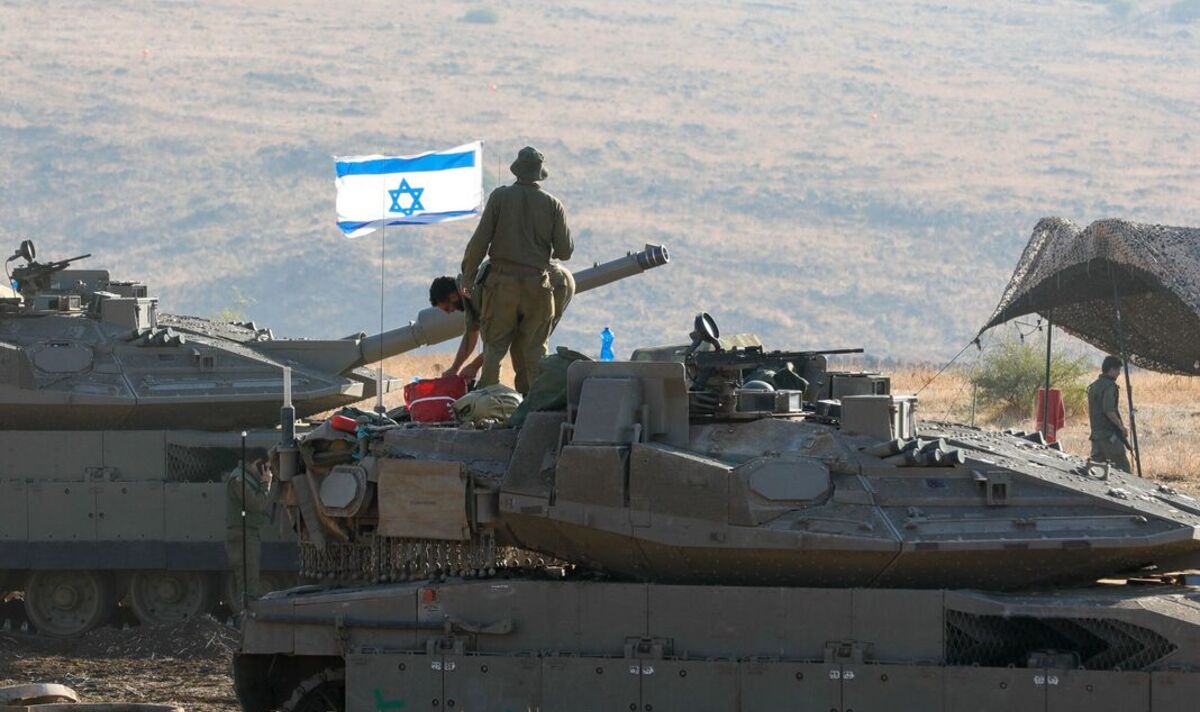
Tensions Rise as Israel Prepares to Confront Hezbollah, Risking Broader War Involving Iran
The U.S. and European officials are warning about the potential escalation of the war in Gaza, with the risk of an Israeli offensive in Lebanon targeting Hezbollah. This development highlights the precariousness of the current geopolitical landscape, where an expanded conflict could draw in Iran and further destabilize the region.
An Israeli offensive in Lebanon could provoke a strong reaction from Hezbollah, supported by Iran, leading to a broader regional war. This scenario could worsen the already dire humanitarian conditions, affecting millions more.
The U.S. has consistently supported Israel but cautions against actions that could lead to a wider conflict. European officials, like Josep Borrell, are calling for a ceasefire and increased humanitarian aid, reflecting a more cautious approach.
Hezbollah, unlike Hamas, has more advanced weaponry and substantial support from Iran. An Israeli offensive could lead to significant casualties and infrastructure damage. Prime Minister Netanyahu’s statements suggest a potential shift in military focus from Gaza to Lebanon, preparing for a multi-front conflict.
The potential Israeli offensive against Hezbollah has significant implications for international relations and regional stability. This conflict could reshape alliances, influence global energy markets, and trigger an unprecedented humanitarian crisis. The U.S. faces a challenging position, balancing its support for Israel with the risk of a broader Middle Eastern conflict.
The human cost of these geopolitical struggles is immense. Civilians in Gaza, Lebanon, and Israel are the most affected, facing displacement, loss of life, and destruction of homes. This underscores the urgent need for diplomatic solutions.
Warnings from U.S. and European officials highlight the critical juncture at which the Middle East stands. Preventing the escalation of the Israeli-Hezbollah conflict is crucial to avoid a broader war involving Iran, with far-reaching consequences for global stability.
Analysis
The Olympics: Beyond Sports, A Billion-Dollar Business with Political Overtones
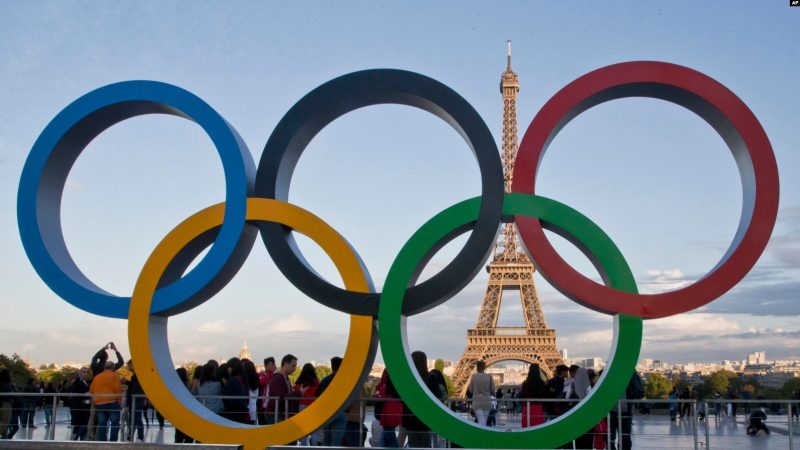
Olympics: A Billion-Dollar Business with Political Overtones
The Olympic Games, an iconic global sporting event, are much more than a gathering of elite athletes competing for glory. They are a massive business enterprise generating billions in revenue and a stage for geopolitical maneuvering. Here’s an in-depth look at how the International Olympic Committee (IOC) operates and the broader implications of the Games.
The IOC, headquartered in Lausanne, Switzerland, is a not-for-profit organization that generates substantial income primarily from broadcasting rights and sponsorships. In the latest four-year cycle ending with the Tokyo Olympics in 2021, the IOC earned $7.6 billion. Broadcast rights accounted for 61% of this revenue, while sponsorships contributed 30% . Despite its not-for-profit status, the IOC operates like a business, reinvesting 90% of its income back into sports, although athletes receive only a small portion directly .
Hosting the Olympics is a costly endeavor, often burdening host nations with significant expenses. The official cost for the Tokyo 2021 Games was listed at $13 billion, with over half funded by Japanese government entities. However, audits suggest the actual cost could be twice as much . The financial strain can overshadow local priorities, raising concerns about the value of hosting such a large-scale event.
The IOC is composed of about 100 members, including several royals and influential figures. The longest-serving member is Princess Nora of Liechtenstein. Despite being labeled as volunteers, IOC members, particularly the president, enjoy significant perks. In 2022, President Thomas Bach’s expenses, including an annual indemnity and tax liabilities, amounted to $370,000 .
The Games rely heavily on unpaid volunteers, who are essential for smooth operations but often face economic exploitation. Paris, for instance, is seeking 45,000 volunteers for the upcoming Olympics, while Tokyo initially sought 80,000. The reliance on volunteers can be problematic, especially in economically challenged regions where locals cannot afford to work for free .
Despite the IOC’s claim that the Olympics transcend politics, the Games are inherently political. They serve as a platform for nations to showcase their prowess and influence. The presence of world leaders at opening ceremonies and the nationalistic fervor surrounding medal counts underline the political dimensions of the event. The IOC’s observer status at the United Nations further cements its political significance .
The bidding process for hosting the Olympics has evolved due to high costs and political considerations. The 2024 Summer Games saw only Paris and Los Angeles as contenders, with Paris winning the bid and Los Angeles securing the 2028 Games. The 2032 Games were awarded to Brisbane, Australia, significantly ahead of time, partly due to influential lobbying by IOC member John Coates . Studies have shown that hosting the Olympics can be a financial loss for cities, displacing essential public services and infrastructure investments .
The Olympics have frequently been marred by scandals and corruption. The Tokyo 2021 Games were tainted by bribery allegations, and the 2016 Rio Games faced severe financial mismanagement. The 2014 Sochi Winter Games were overshadowed by a state-run doping scandal. Historical examples, like the corruption in the bidding process for the 2002 Salt Lake City Winter Games, highlight the ethical challenges facing the IOC .
The Olympics, while celebrated for their sporting excellence, are deeply entwined with significant financial interests and political agendas. Understanding these dimensions provides a clearer picture of the complexities behind this global event, emphasizing the need for transparency and reform to ensure the Games’ integrity and sustainability.
Analysis
Somaliland: A Goldmine of Renewable Energy and Rare Earth Minerals Poised to Transform the Region
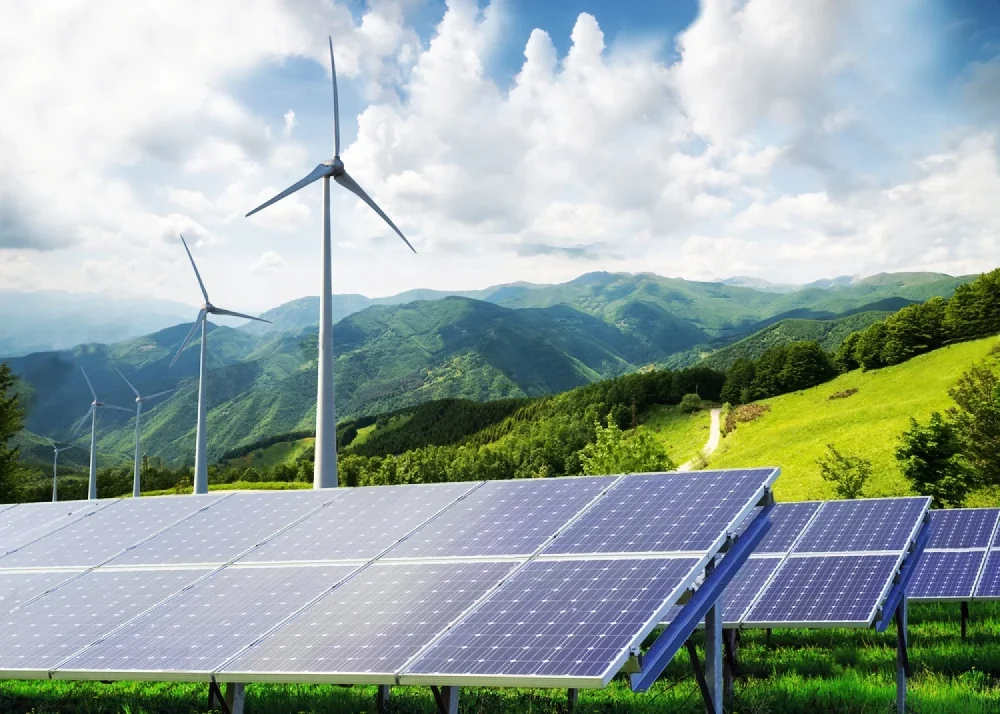
Somaliland, an unrecognized state in the Horn of Africa, is emerging as a hidden gem with vast potential in renewable energy and rare earth minerals. Covering 85% of its territory, Somaliland boasts one of the highest wind and solar energy potentials globally, setting the stage for a green energy revolution.
Somaliland’s renewable energy prospects are nothing short of extraordinary. The country’s vast wind and solar resources make it an ideal candidate for large-scale renewable energy projects. Imagine an entire nation being described as a “giant renewable energy playground”—that’s Somaliland. This abundant potential offers a unique opportunity to harness clean energy, reduce carbon emissions, and provide sustainable power to millions.
In an inspiring example of local innovation, an engineer from Somaliland has designed a wind turbine and windmill from scrap metal. This initiative demonstrates the ingenuity and resourcefulness of the local population, and plans are already in place to scale up these projects. Such grassroots efforts underscore the feasibility of harnessing Somaliland’s renewable energy potential using locally sourced materials and expertise.
Beyond its renewable energy assets, Somaliland is also rumored to be sitting on a treasure trove of rare earth minerals, including lithium. Lithium is a critical component in the production of batteries for electric vehicles (EVs), making it essential for the future of green technology. This positions Somaliland not just as a player in renewable energy but also in the global supply chain for EV batteries.
Recent reports suggest that a Taiwanese company has discovered significant lithium deposits in Somaliland. This discovery could potentially turn Somaliland into a major competitor in the lithium market, challenging dominant players like China. The phrase “Move over, China, Somaliland is coming for your lithium crown!” captures the potential shift in the global lithium landscape.
The dual potential of renewable energy and rare earth minerals presents a game-changing opportunity for Somaliland. The development of wind and solar farms could provide reliable and sustainable electricity to the region, reducing dependence on fossil fuels and lowering greenhouse gas emissions. Additionally, the extraction and processing of lithium and other rare earth minerals could drive economic growth, create jobs, and position Somaliland as a key player in the green energy sector.
Somaliland’s long coastline, rich in fish and other marine resources, further enhances its economic prospects. Combined with its untapped mineral wealth, Somaliland has all the ingredients to become a leader in the green energy revolution.
However, realizing this potential will require significant investment in infrastructure, technology, and education. The government of Somaliland, along with international partners, must work together to create a conducive environment for investment and development. This includes building the necessary infrastructure to support large-scale renewable energy projects and ensuring sustainable and responsible mining practices for rare earth minerals.
Moreover, political stability and international recognition remain key challenges. Somaliland’s unrecognized status complicates its ability to attract international investment and secure funding for large-scale projects. Addressing these issues through diplomatic efforts and regional cooperation will be crucial for unlocking Somaliland’s full potential.
Somaliland stands at the brink of a transformative era with its immense renewable energy resources and rare earth mineral deposits. The combination of wind and solar energy potential with significant lithium reserves positions the region as a future leader in the green energy sector.
As Somaliland continues to develop its renewable energy infrastructure and rare earth mineral extraction capabilities, it could become a beacon of sustainable development and economic growth in the Horn of Africa. With strategic planning, investment, and international support, Somaliland is poised to take the renewable energy stage by storm and pave the way for a greener, more prosperous future.
Analysis
Somalia Urges Peacekeeper Withdrawal Delay Amidst Al Shabaab Resurgence Concerns
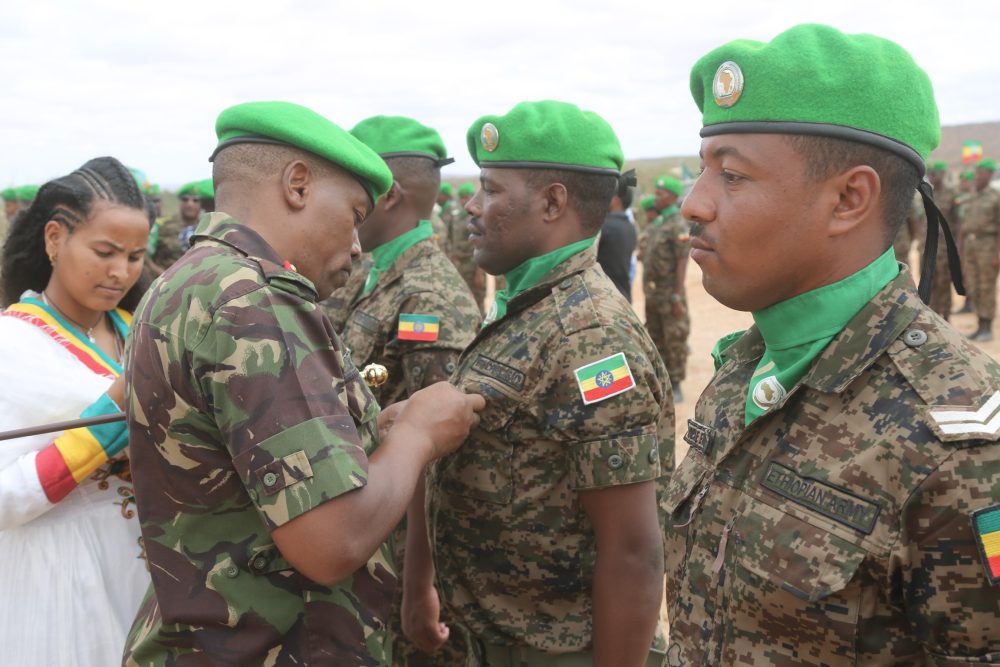
As Somalia grapples with the persistent threat of al Shabaab militants, the Somali government is urgently seeking to slow the withdrawal of African Union peacekeepers. This request, highlighted in documents reviewed by Reuters, underscores the fears of a potential security vacuum that could embolden the Islamist insurgency.
The African Union Transition Mission in Somalia (ATMIS) is set to complete its withdrawal by December 31, 2024. However, Somalia’s government has requested to delay the withdrawal of half of the 4,000 troops slated to leave by the end of June until September. This plea, contained in a letter to the acting chair of the African Union Peace and Security Council, reflects deep concerns over the readiness of Somali forces to fill the impending security gap.
A joint assessment by the Somali government and the AU in March, reviewed by Reuters, warned that a rapid drawdown of ATMIS personnel could lead to a dangerous security vacuum. “I’ve never been more concerned about the direction of my home country,” expressed Mursal Khalif, an independent member of Somalia’s defense committee.
The European Union and the United States, primary funders of the AU force, have been keen on reducing the peacekeeping mission due to sustainability and long-term financing issues. The complexities of negotiating a new force with a robust mandate acceptable to all parties, including Somalia, have proven challenging. Diplomatic sources indicate that a heated political dispute could lead Ethiopia, a key contributor of battle-hardened troops, to reconsider its involvement.
The call for a smaller force likely reflects the views of nationalists within Somalia who oppose a heavy foreign presence. “The AU and Somalia’s government have emphasized the importance of a conditions-based drawdown to prevent any security vacuum,” said Mohamed El-Amine Souef, AU special representative to Somalia and head of ATMIS.
Neighboring countries like Uganda and Kenya, which have contributed troops to the mission, share Somalia’s concerns. Henry Okello Oryem, Uganda’s state minister of foreign affairs, warned against a hasty withdrawal reminiscent of the U.S. pullout from Afghanistan, fearing a similar collapse. “We do not want to get into a situation where we are fleeing,” he said.
Recent military setbacks in Somalia have compounded these worries. In August, al Shabaab counter-attacked in the town of Cowsweyne, killing scores of soldiers and beheading civilians. This attack underscored the militants’ resilience and the Somali army’s vulnerabilities, despite previous territorial gains.
The potential withdrawal of peacekeepers poses significant risks. Somalia’s army, estimated at around 32,000 soldiers, faces a shortage of about 11,000 trained personnel. While the government claims its soldiers can confront al Shabaab with limited external support, ongoing external assistance remains crucial. The United States, for instance, maintains around 450 troops in Somalia for training and advisory roles, alongside conducting regular drone strikes.
International support for Somalia has been substantial. The U.S. has spent over $2.5 billion on counterterrorism assistance since 2007, while the EU has provided about $2.8 billion to ATMIS and its predecessor missions. However, resources are increasingly strained, with the EU shifting towards bilateral support and the U.S. grappling with competing priorities, including Ukraine and Gaza.
As Somalia navigates this precarious phase, the international community must balance the need for Somali self-reliance with the reality of al Shabaab’s persistent threat. Delaying the withdrawal of peacekeepers could provide the necessary time for Somali forces to strengthen and stabilize. However, the complexities of international funding and regional politics add layers of uncertainty to an already volatile situation.
The upcoming discussions at the Peace and Security Council will be pivotal in shaping the future of Somalia’s security landscape and its ongoing battle against terrorism.
Analysis
Putin’s Visit to North Korea: More Than Just a Diplomatic Gesture
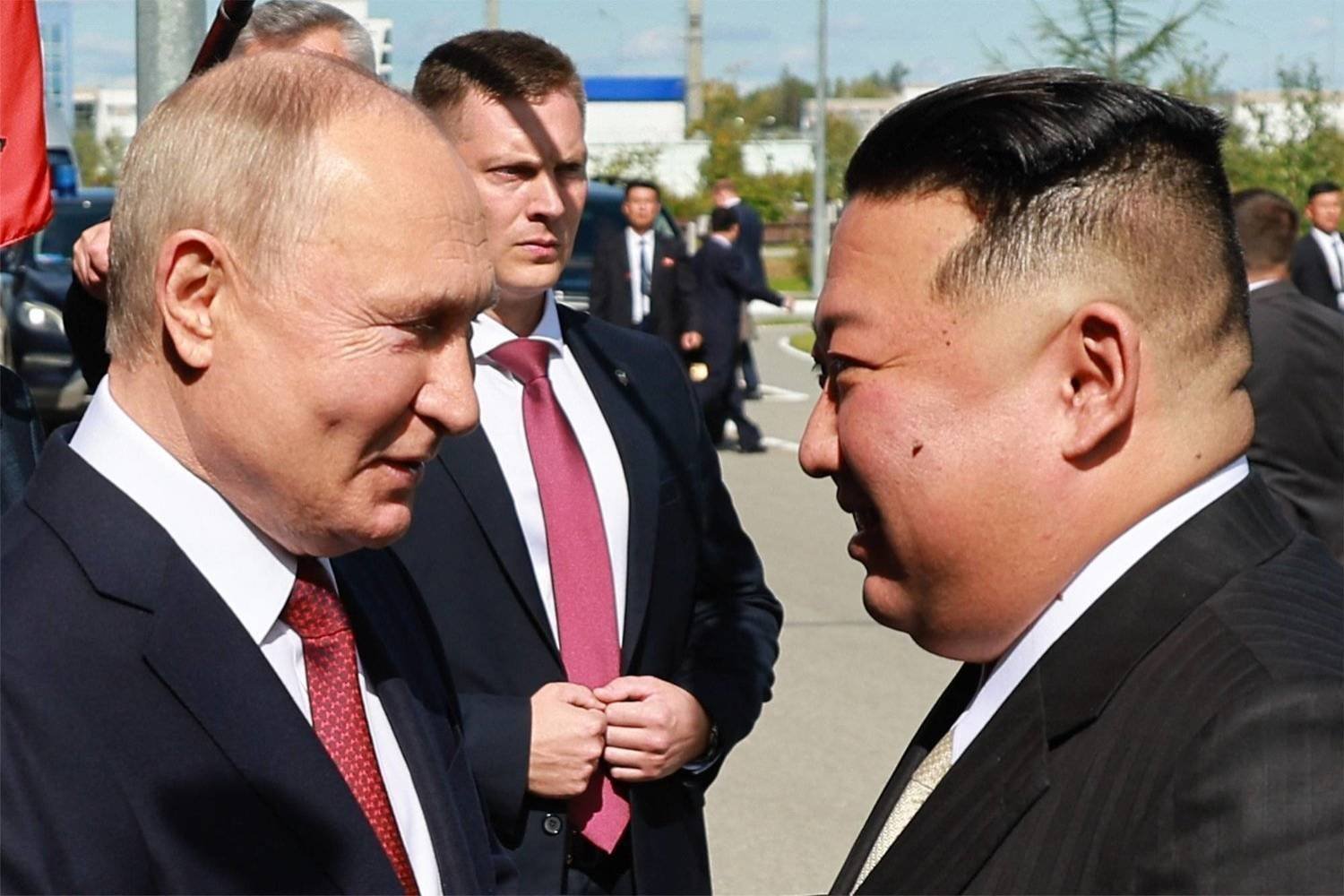
When North Korean leader Kim Jong Un visited Russia in September, the focus was clear: strengthen military ties. Kim’s tour included inspecting advanced Russian military equipment, such as fighter jets and strategic bombers, and a visit to the Vostochny Cosmodrome with President Vladimir Putin, where Russia pledged support for North Korea’s satellite program. As Putin prepares for his visit to North Korea, experts predict more substantial agreements could be on the horizon.
During Kim’s visit to Russia, he was given a close look at some of the country’s most advanced military technology, highlighting the growing defense cooperation between the two nations. Despite no formal agreements being announced at that time, analysts believe Putin’s upcoming visit could solidify these military ties.
Alexey Muraviev, an expert on national security from Curtin University, suggests that Putin’s trip will likely result in more than just diplomatic pleasantries. He anticipates concrete outcomes that will enhance the burgeoning military cooperation between Russia and North Korea.
The visit underscores a significant shift in the geopolitical landscape. Russia, facing international sanctions and isolation due to its actions in Ukraine, finds a strategic ally in North Korea. This partnership allows both countries to counter Western influence and assert their military capabilities. Kim Jong Un has been vocal in his support for Russia’s actions in Ukraine, and there is evidence of North Korean weapons being used in the conflict.
Beyond military ties, economic cooperation is also a key area of focus. North Korea, grappling with severe economic challenges, benefits from Russian support in terms of food and energy supplies. Russia, in return, gains a foothold in the Korean Peninsula, further diversifying its strategic partnerships.
Artyom Lukin, a professor at Russia’s Far Eastern Federal University, points out that both countries might find ways to navigate around U.N. sanctions to enhance economic ties. For instance, sending North Korean laborers to Russia could be a potential area of cooperation, despite the existing sanctions.
The deepening relationship between Russia and North Korea could significantly impact regional dynamics in Northeast Asia. This partnership challenges U.S. efforts to isolate North Korea and could lead to increased tensions in the region. South Korea and Japan, key U.S. allies, are particularly concerned about the implications of this growing alliance.
In a recent emergency phone call, senior U.S. and South Korean diplomats warned against any actions during Putin’s visit that could violate U.N. Security Council resolutions. These resolutions restrict a wide range of economic and military interactions with North Korea, aimed at curbing its nuclear ambitions.
The potential outcomes of Putin’s visit to North Korea are numerous. If the visit results in formal agreements, it could mark a new chapter in Russia-North Korea relations, characterized by deeper military and economic cooperation. This could further complicate the international sanctions regime and challenge the strategic balance in the region.
Alexey Muraviev suggests that while Russia may continue to outwardly comply with U.N. sanctions, it might find subtle ways to support North Korea, similar to China’s approach. This nuanced strategy allows Russia to maintain its stance as a responsible international actor while still advancing its strategic interests.
The forthcoming visit of Vladimir Putin to North Korea is a significant event that goes beyond mere diplomatic formalities. It is likely to result in enhanced military and economic cooperation, further solidifying the partnership between the two countries. As the global community watches closely, the outcomes of this visit could have far-reaching implications for regional security and international relations.
-

 WARYATV ARCHIVE5 months ago
WARYATV ARCHIVE5 months agoEnvy’s Playground: The Secrets of the World’s Most Jealous City
-
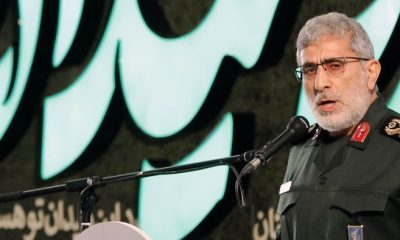
 Editor's Pick3 months ago
Editor's Pick3 months agoIran’s Elite Quds Force Following Former Leader’s Vision of Chaos in the Middle East
-
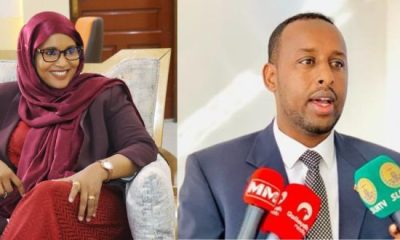
 Analysis3 months ago
Analysis3 months agoA Tale of Two Somalis: Why the West Invests in Chaos While Ignoring Stability
-
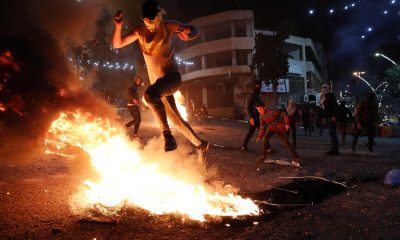
 Analysis3 months ago
Analysis3 months agoIsrael’s Self-Destruction: The Legacy of Netanyahu, Palestinian Struggles, and Neglected Realities
-
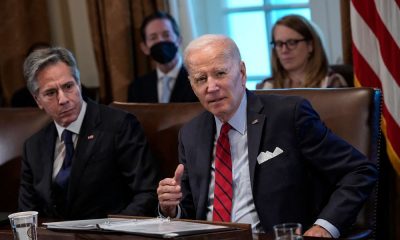
 Analysis3 months ago
Analysis3 months agoBiden Stands Firm with Israel Amid Iran’s Aggression: A Test of Resilience
-

 TECH2 months ago
TECH2 months agoWhatsApp Introduces Enhanced Community Group Chat Feature, Plans Expansion to Regular Groups
-
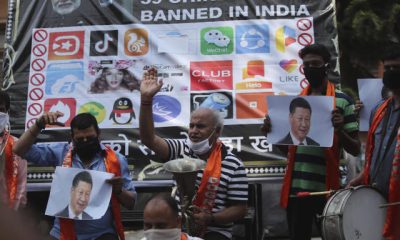
 Analysis2 months ago
Analysis2 months agoTikTok Faces Potential Ban in the US: Lessons from India’s Experience
-
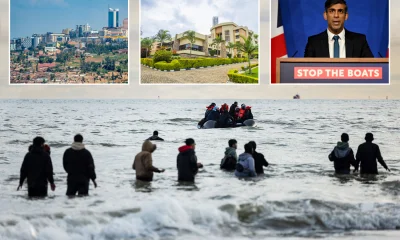
 Analysis2 months ago
Analysis2 months agoHistoric Move: First Migrant Sent to Rwanda Signals Shift in Asylum Policy

